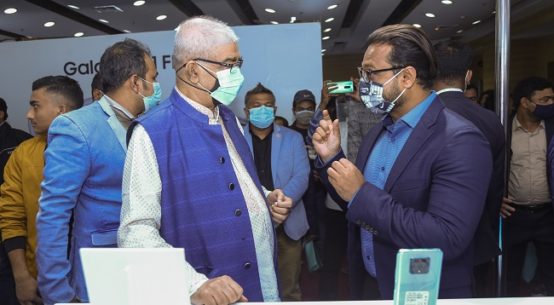Experts at a roundtable discussed key considerations for economically strategic sectors in the upcoming FY25 national budget and highlighted the importance of consistency in policymaking to ensure sustainable revenue growth.
The roundtable titled, “National Budget 2024-25: Priorities for High-potential Sectors,” organized by Policy Exchange, and held on May 6, brought together distinguished luminaries from both the private and public sectors, to deliberate on how the upcoming budget should fare for strategically important sectors for the economy, amidst prevalent macroeconomic issues.
M Masrur Reaz, chairman and CEO of Policy Exchange, presented the welcome remarks at the roundtable as he dissected the current macroeconomic realities and opined on ensuring pragmatic policies for both robust fiscal positions as well as for important economic sectors such as agriculture, tobacco, RMG, FMCG, digital economy and other high-value industries.
“Fiscal policy needs to be targeted and focused on helping the high potential sector to grow and to leverage important sources of revenue growth while ensuring the wellbeing of the citizens. For instance, the tobacco sector, which constitutes about 12-13% of the total domestic revenue, has one of the highest tax incidences in the world – above the WHO recommended level. However, the prices of locally manufactured cigarettes are one of the lowest in the world. To deter people from smoking and ensure sustainable revenue growth, prices of cigarettes belonging to all segments must be increased,” he added.
FH Ansarey, managing director, ACI Agribusiness stated: “The government must focus on three critical areas concerning the agricultural sector – environment and climate change, food value chain, and technology. There should be coordination between the government and private sector in addressing these issues. While the country produces enough, the problem lies with the supply chain. The budget must provide clear guidance on these matters.”
Abdul Mannan Patwary, former member of the National Board of Revenue (NBR), opined: “It is crucial to eliminate inconsistencies in the VAT Act. If the intended purposes of the laws are not being met, then there is no benefit, and they only complicate matters for the common taxpayers. Removing these inconsistencies would increase revenue collection.”
Wahidur Rahman Sharif, managing director, Digicon Technologies Ltd and president, Bangladesh Association of Contact Center and Outsourcing (Bacco), called for the continuation of tax exemptions for the digital sector.
Imposing taxes on the growing digital economy will limit its potential and fall behind neighboring countries. If local companies are not given advantage, foreign companies will seize the opportunity and thereby hinder the development of local expertise, he added.
Former secretary of the Ministry of Commerce and CEO of the Institute of Chartered Accountants Bangladesh Shubhashish Bose commented: “Reducing reliance on indirect taxes as much as possible will be beneficial. A coordinated plan is necessary, with a strong emphasis on digital infrastructure.”

